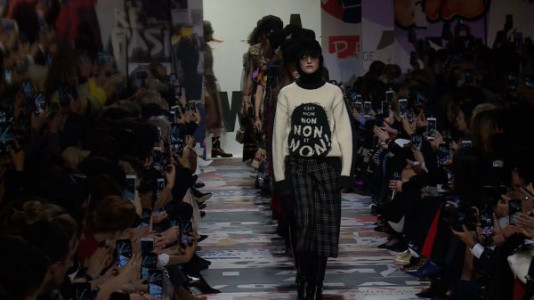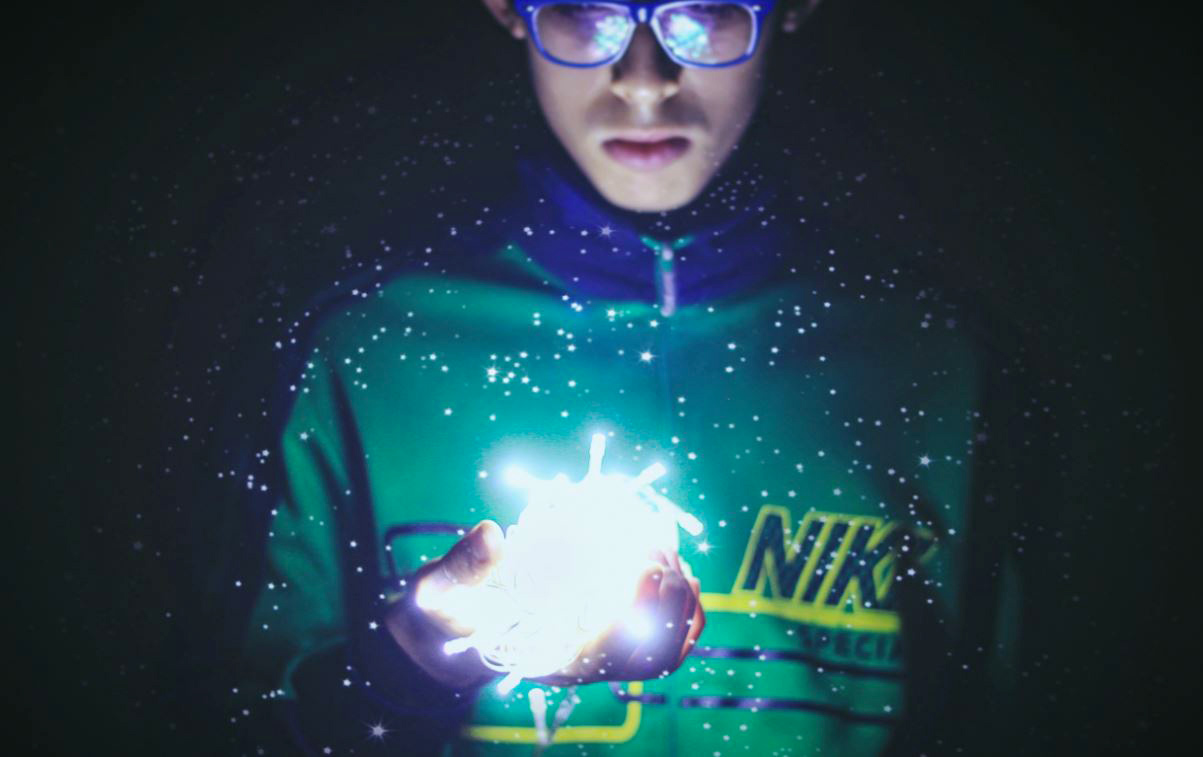International Women’s Day 2018
#WomensHistoryMonth #WomensMarch #TimesUp #MeToo #FutureisFemale
March 8th is International Women’s Day, an annual tradition established by the United Nations (UN) in 1975 to celebrate and recognize women for their achievements.
“International Women’s Day is a time to reflect on progress made, to call for change and to celebrate acts of courage and determination by ordinary women who have played an extraordinary role in the history of their countries and communities,” states the UN website.
Women’s rights, for equality in pay, in treatment, and in safety have re-entered the public discourse as of late, and brands have begun taking a stand on the issue.
In this article on the blog, we highlight individuals, brands, organizations, and events that have contributed to the growing women’s rights movement using articles written by AFP and Relaxnews journalists from my editorializer. Read their stories below to get up to speed on the movement and reflect on your role.
#MeToo and #TimesUp: Hashtags Making Headlines
Now well-known hashtags turned movements, #MeToo and #TimesUp speak to the pervasive issue of harassment of women in the workplace. #MeToo sparked the conversation on harassment, and #TimesUp, a campaign launched in January by Hollywood women to pay lawyer fees for women in harassment cases, combats sexual harassment across industries.
The two hashtags have gained notoriety largely due to high-profile music and film events.
In the past week, at the Cesars (often referred to as “the French Oscars”), stars wore white ribbons in protest at violence against women. The Cesars sparked feminist fury last year when controversial Franco-Polish director Roman Polanski was invited to preside over the awards before he was forced to pull out. This year the global anger fueled by the #MeToo movement took center stage on the red carpet in Paris with stars like Marion Cotillard and Penelope Cruz sporting white ribbons to condemn abuse and exploitation. The same weekend, on the other side of the pond at the Oscars, attendees wore white, the color associated with the suffragette movement.
Following the announcement of the #TimesUp movement at the Grammy’s, The Recording Academy, the body that administers the Grammy Awards named Tina Tchen, chief of staff to the former first lady Michelle Obama, leader of the Time’s Up anti-harassment movement. Tchen will lead a task force on better including women after controversy over women’s low representation at the music industry’s latest awards.
Change is coming. Vicki O’Leary, a union organizer with Ironworkers International who is working to diversify its ranks, is optimistic. The #MeToo movement “is having an impact,” she said. “The women ironworkers are sticking together.” Vellinga echoed the view that “among trade women, there’s a lot of optimism” — but she says few expect to start feeling the #MeToo effect in the near future. The hashtags turned movement represent the first steps in the marathon effort required to close the gaps for women.
Celebrities aren’t the only ones taking a stand. In an important shift, brands too find their voices and share their perspective on the women’s rights issues.
Here are a few of our favorite examples:
- #MoreRoleModels, Barbie showcases role models from diverse backgrounds
For International Women’s Day, Barbie honors both historical and modern-day role models from international, diverse backgrounds. “We know that you can’t be what you can’t see,” said Lisa McKnight, Senior Vice President and General Manager of Barbie, in a statement. “Girls have always been able to play out different roles and careers with Barbie and we are thrilled to shine a light on real-life role models to remind them that they can be anything.” The brand is honoring 14 modern-day role models in different fields, with dolls made in their likeness. - Dior put feminism at center stage during Paris Fashion Week
Designer Maria Grazia Chiuri, who began her reign at the French couture house with the now cult T-shirt, “We Should All be Feminists”, summoned up the spirit of 1968, the year when social and sexual revolutions swept the planet. Chiuri’s muse, British model and women’s rights advocate Ruth Bell, led the line with a black and white woollen jumper declaring, “Non, non, non et non!” “It is not bad to say ‘No! No! No!’ sometimes,” the designer told AFP after the show, “Feminism means freedom, freedom to dress how you want, to define yourself.” - Beauty brand Soap & Glory launched its “More Than Lips” campaign during the Women’s March in Los Angeles.
Featuring a diverse group of women who have shared their honest, uncensored personal stories in a video, the campaign comprises a social media call to action, encouraging beauty fans everywhere to share their own thoughts and experiences about what it means to be a woman today. For every Instagram post using the hashtag #MoreThanLips uploaded during the duration of the campaign, launched this past January, Soap & Glory will donate $5 to She Should Run, a national organization that is working to increase the number of women running for elected office to 250,000 by 2030. - Reese Witherspoon teams up with beauty giant Elizabeth Arden to launch a special edition red lipstick that champions women’s issues.
The lipstick, a limited-edition of the brand’s signature “Red Door Red” lip color signed by the Oscar-winning actress, is part of the cosmetic giant’s new “March On” campaign celebrating women’s achievements. The choice of the brilliant red hue is a reference to the fact that back in 1912, the brand’s founder Elizabeth Arden provided red lipsticks to the suffragettes marching on Fifth Avenue — a move that led to the controversial red shade becoming synonymous with the women’s rights movement. The brand will donate 100% of the global sales proceeds from the special edition lippy to UN Women, to the tune of US $1 million, to demonstrate its continued support of global women’s issues. - Lancôme fights illiteracy among women with the launch of the star-studded campaign “Write Her Future.”
The initiative sees the French beauty giant partner with CARE, an NGO operating in 94 countries that works to combat extreme poverty. With the help of its celebrity ambassadors, including Julia Roberts, Kate Winslet, Penélope Cruz, Lupita Nyong’o, Lily Collins, Isabella Rossellini and Taylor Hill, the brand is using social media to raise awareness of the staggering female illiteracy rates around the world — a figure estimated by UNESCO to be 76 million.
A common thread: clear motivation and a call to ACTION.
Brands getting involved and speaking up for the women’s movement must go beyond words and lead with actions. Their messages gain credibility by inviting audience members to join in their fight or contribute monetarily to the cause. Brands driven only by the concept of women out front, like Scottish whisky brand Johnnie Walker, who fail to push for action have been less successful in their contributions to the larger conversation. Johnnie Walker tried to cash in on the current climate by turning their iconic Striding Man Johnnie into Jane.
For the first time in more than a century, the brand’s iconic Striding Man was replaced by his female counterpart, ‘Jane Walker,’ depicted in a distinctly curvaceous silhouette with top hat, tuxedo jacket, jodhpurs and riding boots. The brand tried to highlight the roles of key women in the development of the brand, including Elizabeth Walker, wife of founder John Walker, and the company’s 12 female blenders.
“Introducing Jane Walker, our new icon that celebrates progress in Women’s Rights. With every step, we all move forward,” read the Twitter announcement. What the brand neglected, however, was a clear action plan for progress. It didn’t take long for the Twittersphere to respond, with some commentators applauding the move, and several others blasting it.
“Sorry… exactly what progress has been made? Pay equality? Political Equality? Reproductive control? Hmmm…But thank GOD there’s a scotch with a lady on the bottle. Now I feel equal. Thanks.”
– @HeatherMcguigan
While showing solidarity is arguably better than remaining a passive bystander in the women’s movement, as with all brand messages, authenticity is key. Great communications and strong campaign ideas may get the press talking, but brand communication is only as powerful and credible as the actions that back the message.
Keep this in mind as you reflect on International Women’s Day this year. Whilst crafting the perfect tweet or Instagram post on behalf of your company, consider carefully the story you write for your brand and your level of credibility. Do your actions speak as loud as your words?
Written using articles from AFP Relaxnews, published previously on my editorializer.






